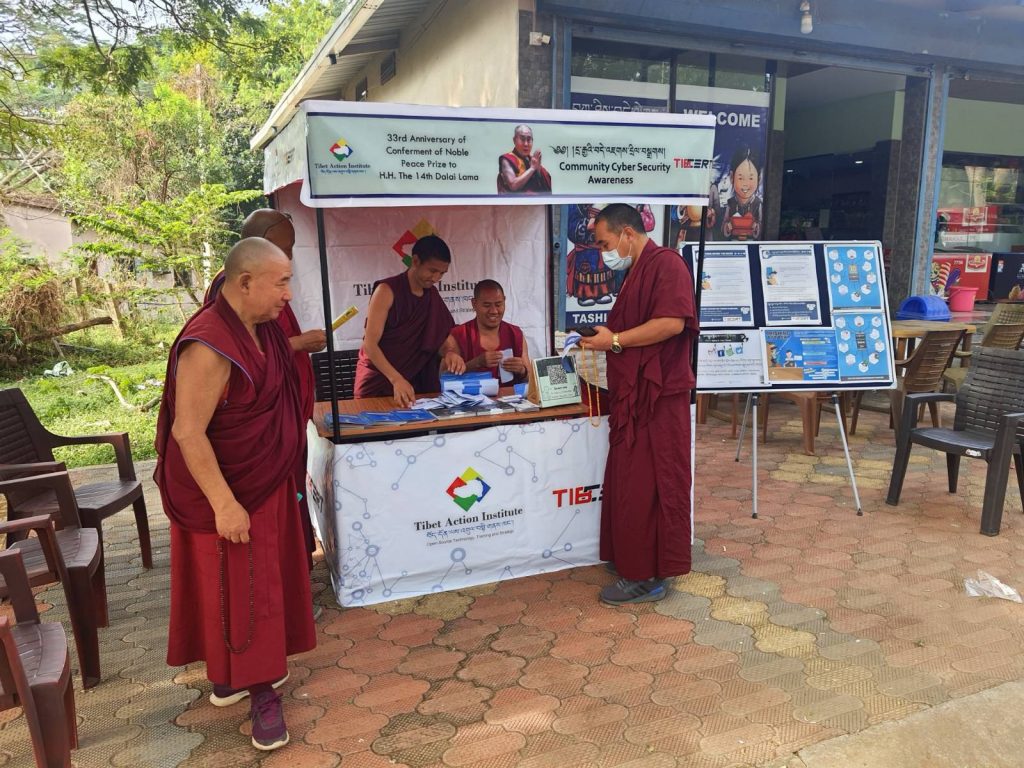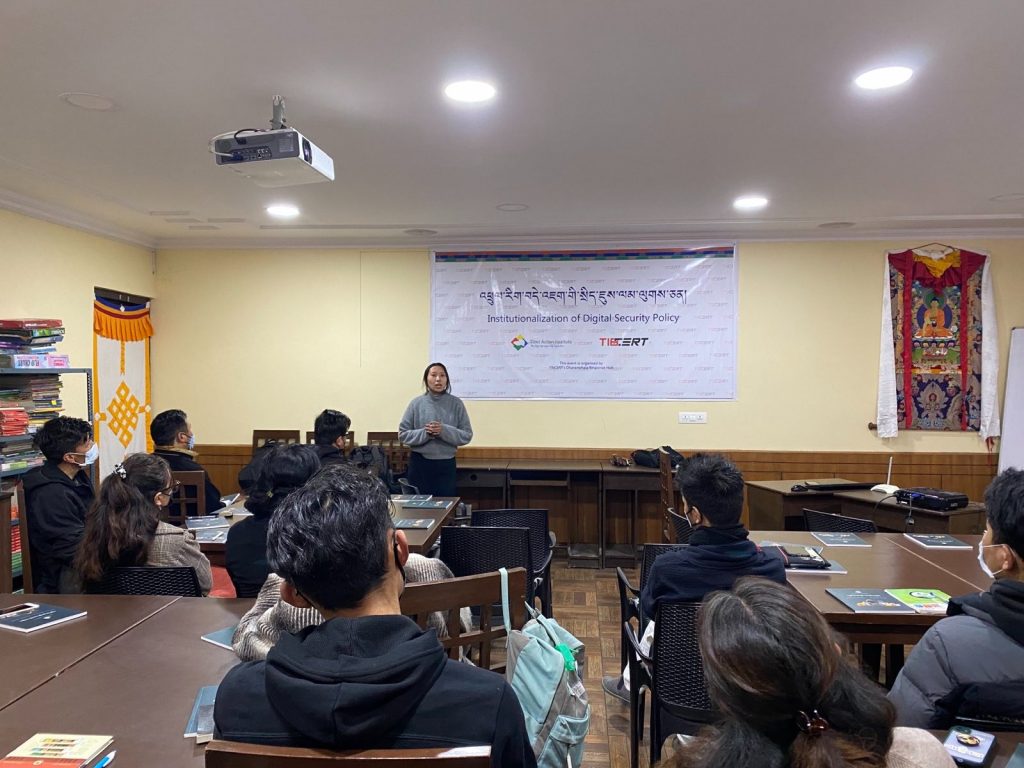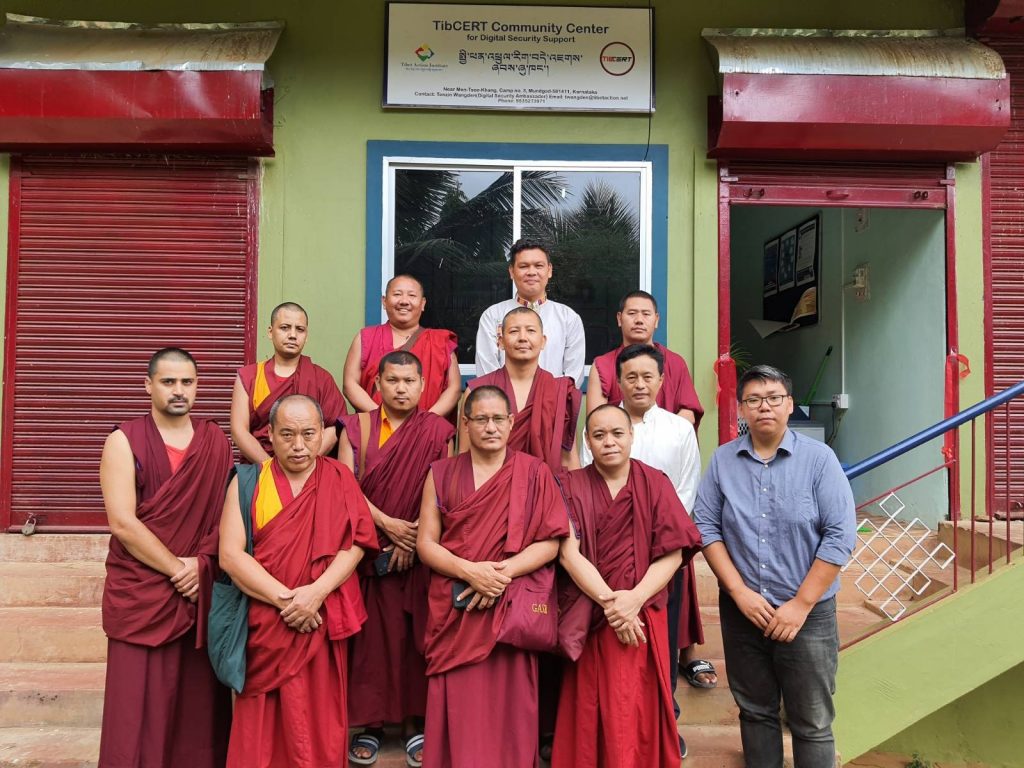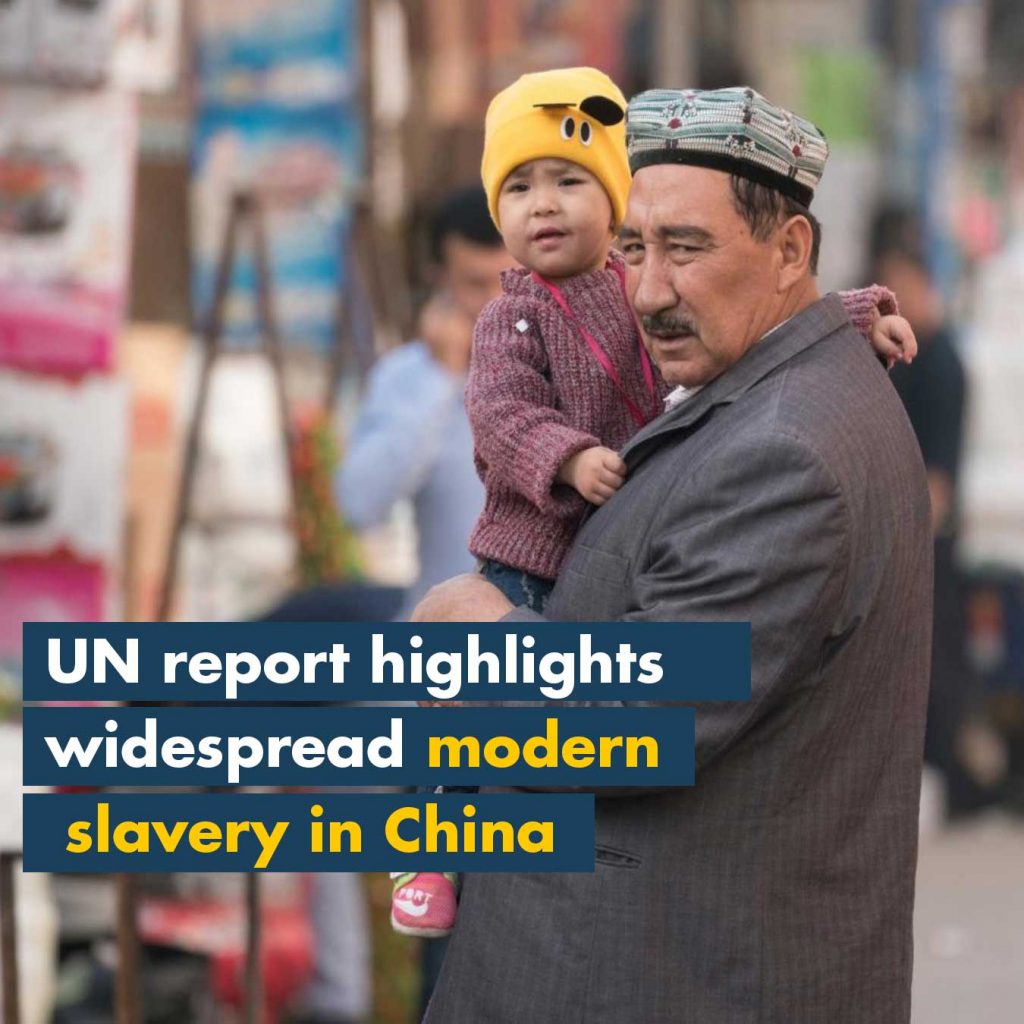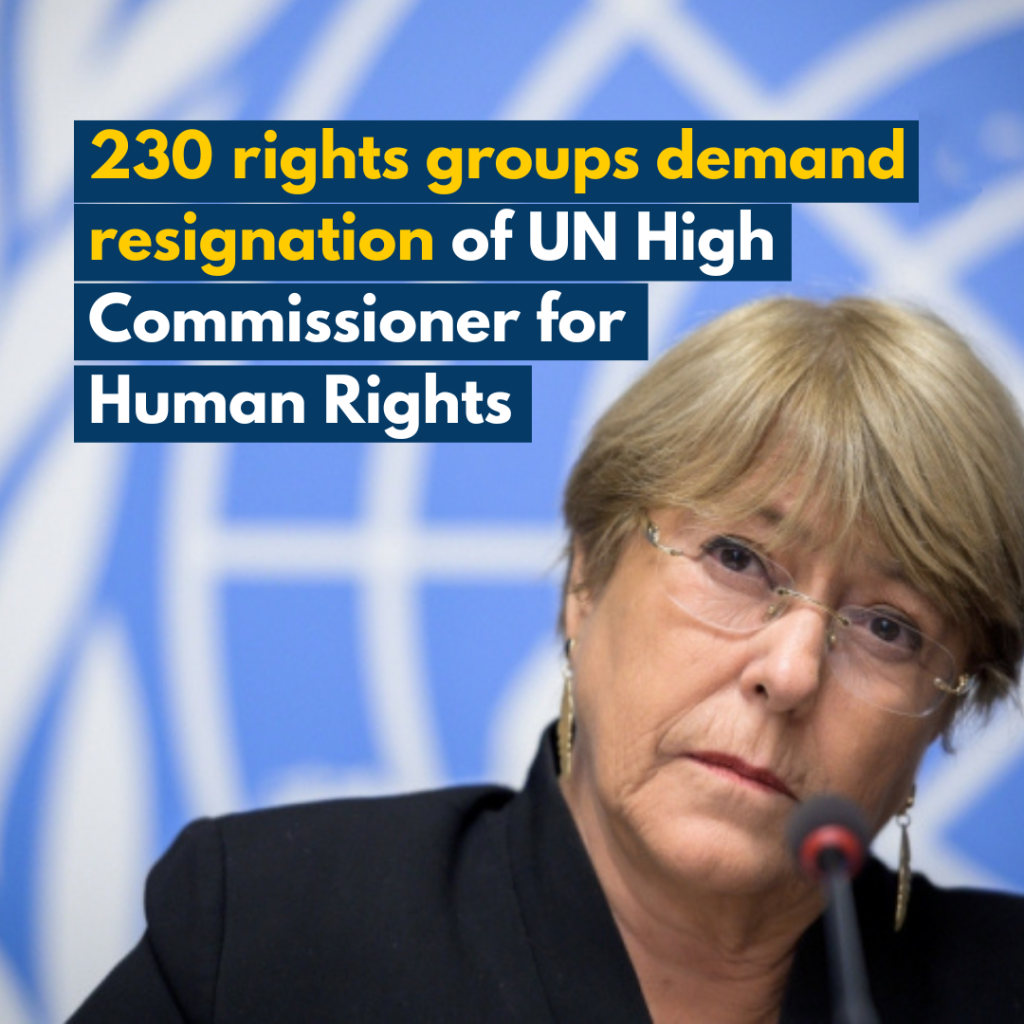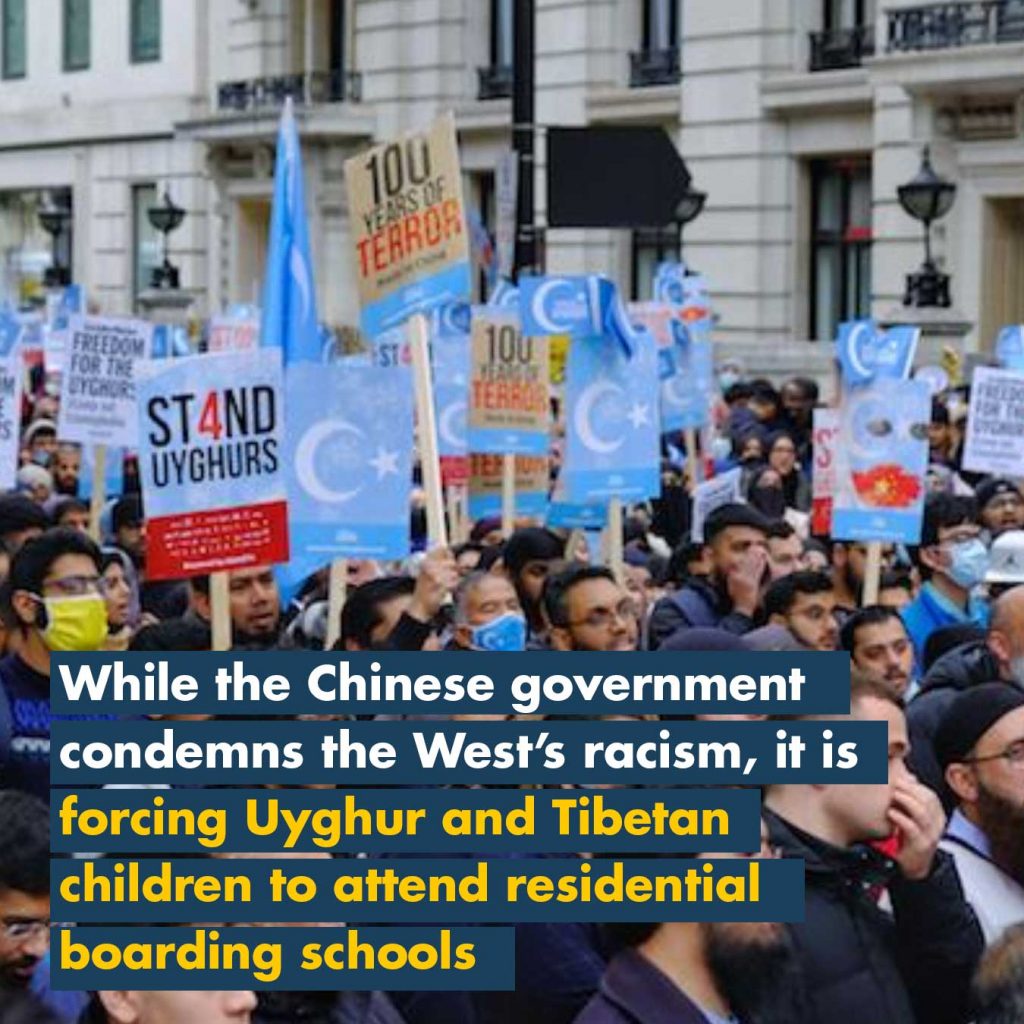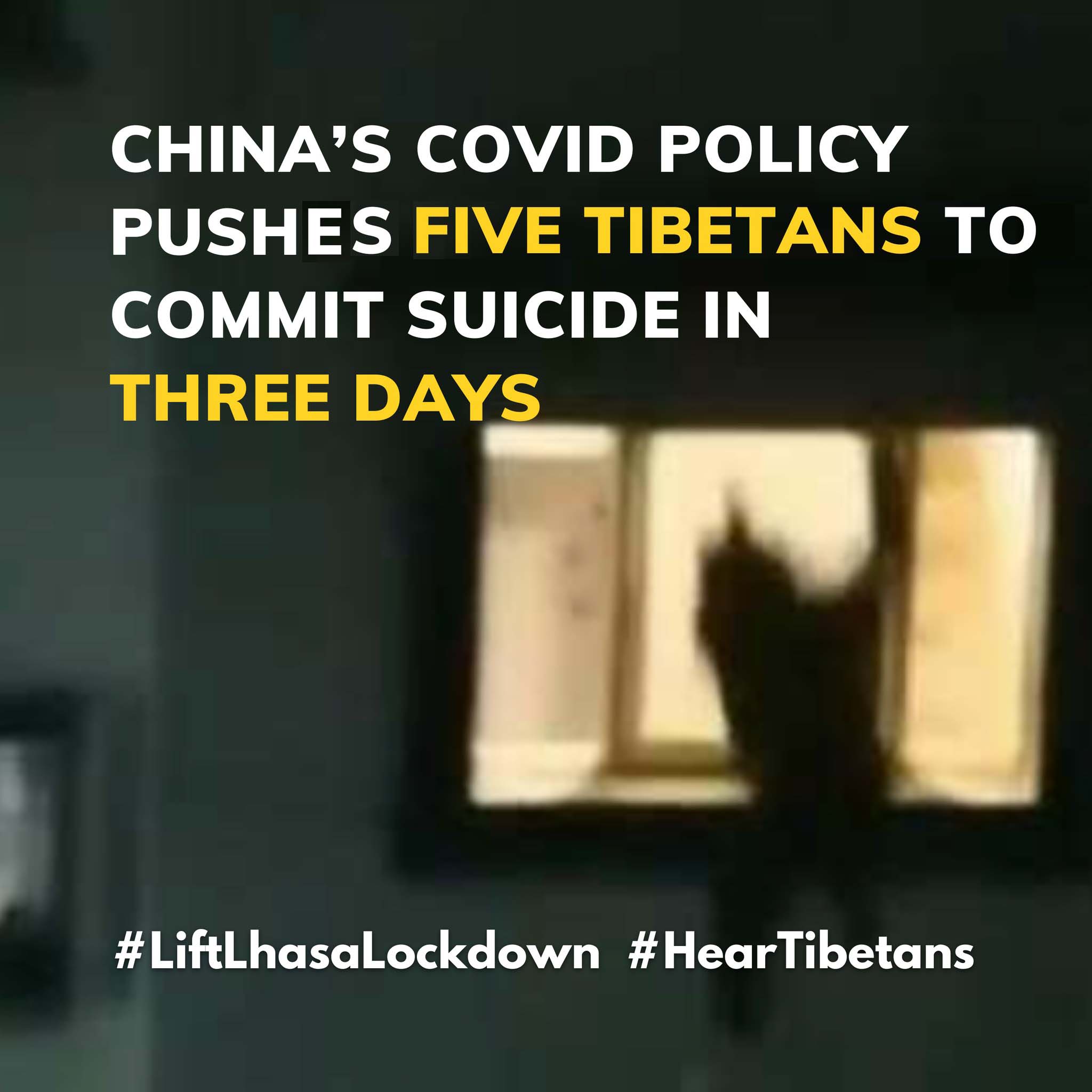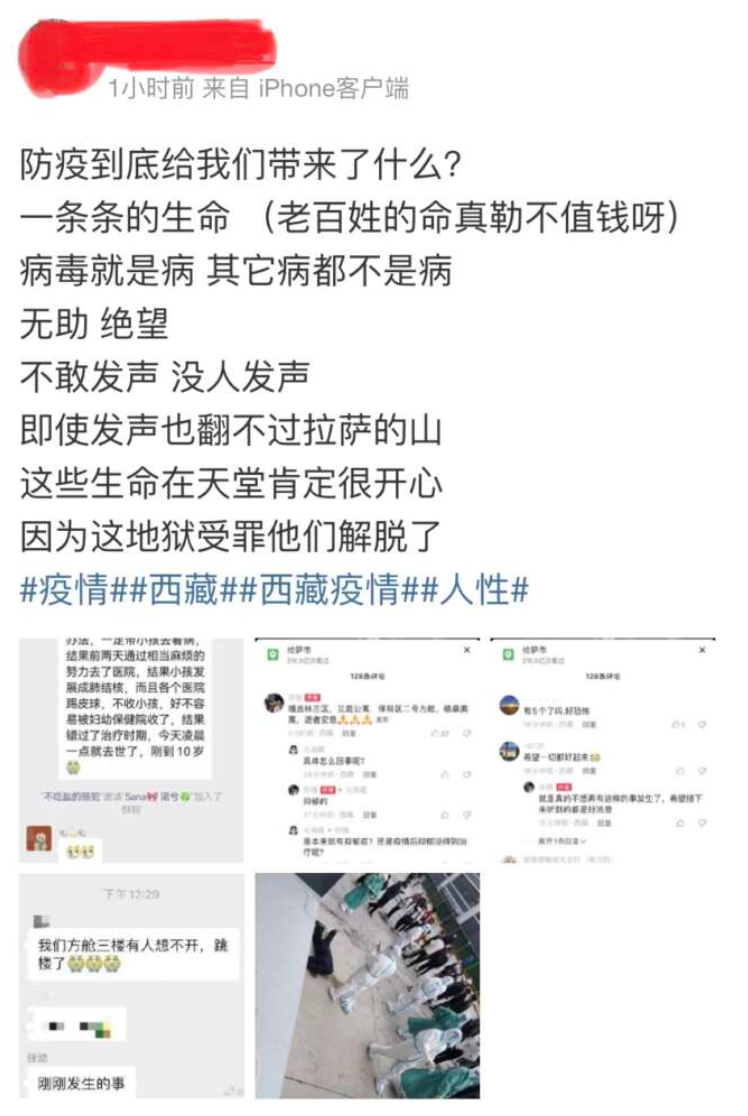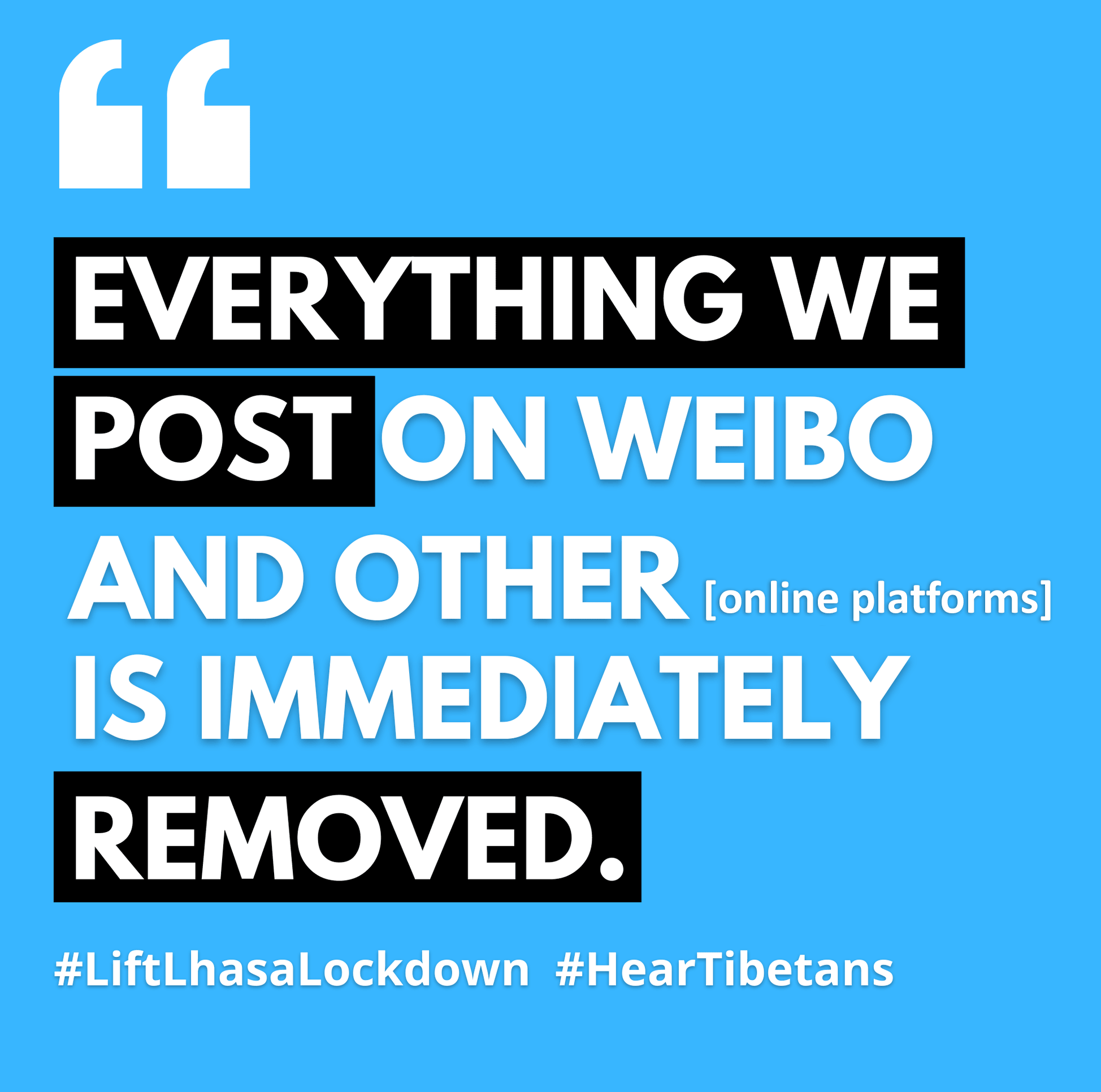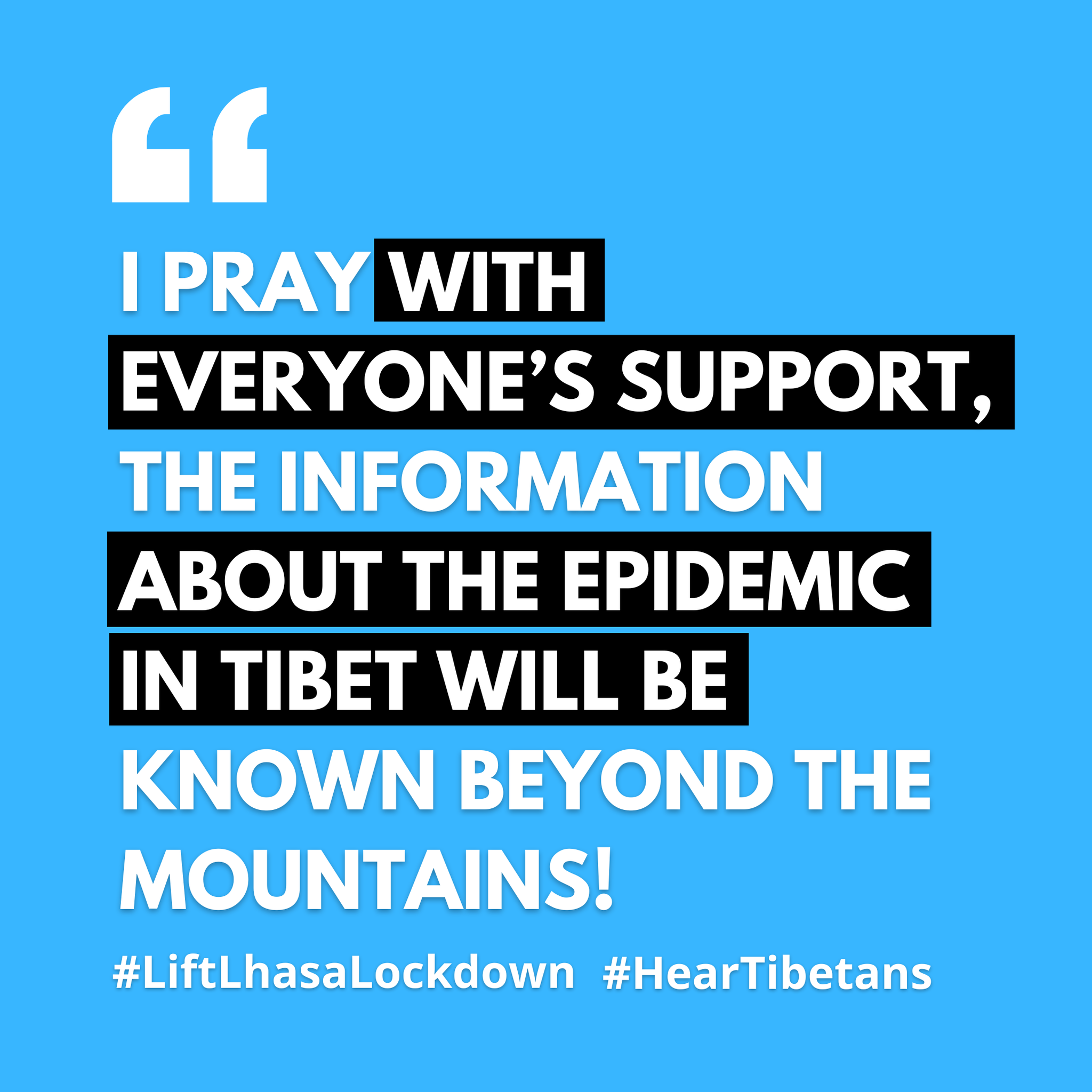Colonial Boarding Schools Campaign Making Headway
Following the December 2021 public launch of Tibet Action Institute’s groundbreaking report “Separated from Their Families, Hidden from the World,” this past year we grew the momentum for the campaign. Through our ongoing work, we achieved solid and concrete results on behalf of the 800,000 to 1,000,000 Tibetan children living in China’s colonial boarding schools across Tibet.
Our first advocacy milestone came in March 2022 when the UK Mission to the United Nations (UN) in Geneva delivered their Item 4 statement to the UN Human Rights Council and specifically mentioned boarding schools in Tibet. Ambassador Simon Manley, UK Permanent Representative to the UN in Geneva, said, “The situation in Tibet remains of deep international concern, including new reports of boarding schools being used to further erode cultural, linguistic and religious identity.”
In April 2022, Lhadon Tethong testified at the Congressional-Executive Commission on China in a hearing titled “Growing Constraints on Language and Ethnic Identity in Today’s China.” Speaking before Chair Senator Jeff Merkley (D-OR) and Cochair Representative James P. McGovern (D-MA), Lhadon pressed the CECC and its chairs to speak out against China’s colonial boarding schools in Tibet.
In May 2022, Lhadon also had the opportunity to directly brief the outgoing UN Human Rights Chief Michelle Batchelet before she went to China for the first visit by the High Commissioner for Human Rights since 2005. While Batchelet’s trip was a disaster, she did say that she “discussed education policies in the Tibet Autonomous Region and stressed the importance of children learning in their own language and culture in the setting of their families or communities.”
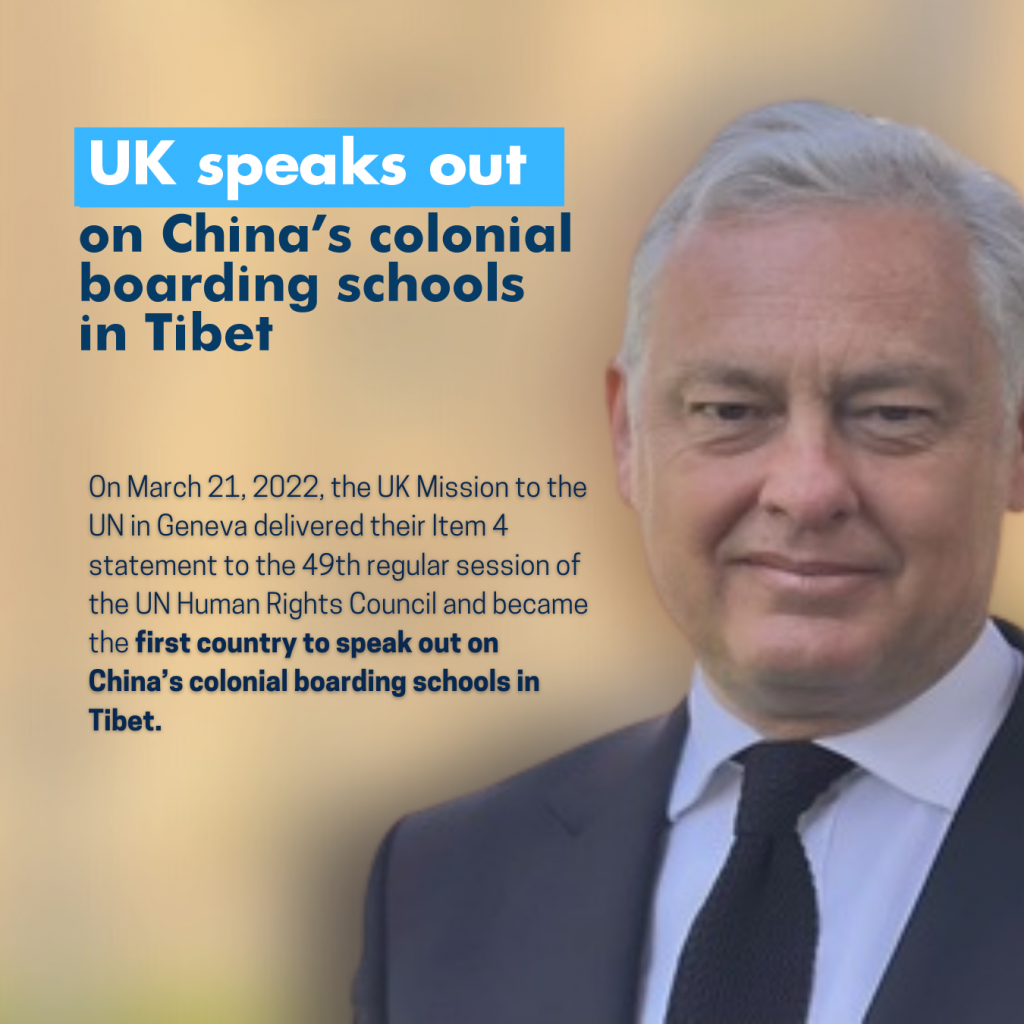
Over the course of the year, we raised awareness about colonial boarding schools via government advocacy, in the media, in academic spaces, and at the grassroots level thanks to close collaboration with the global Tibet movement. We were pleased to see Under Secretary Uzra Zeya, U.S. Special Coordinator for Tibetan Issues, use her October 2022 statement on the anniversary of the Tibet Policy Act to speak about colonial boarding schools in Tibet. Under Secretary Zeya called for China to “…cease the forceful assimilation of the Tibetan community, including through government-sponsored boarding schools and other draconian measures.”
Finally, in November 2022, we achieved the last major milestone of the year when the Congressional-Executive Commission on China officially called upon the UN to investigate China’s colonial boarding school system in Tibet. In a letter to the new Human Rights Chief Volker Türk, Senator Merkley (D-OR) and Congressman McGovern (D-MA) said: “We see this system as resulting in serious human rights violations and cultural and linguistic erasure.”
In 2023, we will continue to build on this important moment to secure more action for Tibetan children.
–
Colonial Boarding School Expert Witness
In 2022, Tibet Action Institute joined together with leading Tibetan educationist Dr. Gyal Lo, exposing the existence of a mandatory system of colonial boarding preschools run by the Chinese government. Our research with Dr. Gyal Lo shows that Tibetan children aged four to six are being housed in these schools across Tibet.
Dr. Gyal Lo is an important eyewitness to China’s devastating education policies in Tibet and he has personally visited more than 50 boarding preschools. He estimates at least 100,000 Tibetan children are living in these institutions.
Government officials seem to be reluctant to act without more proof, so we are collecting more supporting evidence and reaching out to the media. We are making headway – colonial boarding schools were recently mentioned in the New York Times, along with a feature on Dr. Gyal Lo, and we are working to secure more stories in the coming months.
TIBET UNLOCKED: Eyewitness to colonial boarding preschools in Tibet (Part 1)
Based on his firsthand experience of this program, Dr. Gyal Lo speaks about Beijing’s motivation for the policy and the devastating impact it is having on parents and children.
China’s mandatory schools rip Tibetan children from their cultural roots in order to raise them to identify as Chinese.
Tenzin Dorjee discusses colonial boarding schools with Voice of America (in Tibetan).
TibCERT Update
In 2022, TibCERT Community Centers were established in Bylakuppe and Mundgod, making our resources more accessible to the local communities. Through these centers and a third in Dharamsala, TibCERT now has more capacity to respond to tech issues and incidents that arise in an efficient and effective way. This past year, the centers have also organized digital security awareness campaigns in their communities, helping elevate the knowledge and security of Tibetans in India and their networks. These initiatives are led by TibCERT and supported by volunteers from the community. You can read more about the program at https://tibcert.org/response-hub.
Throughout 2022, TibCERT worked to develop its own incident response architecture and system that will be launched in January 2023. The new structure includes an incident and support intake system for the community, as well as a process for TibCERT to conduct dynamic analysis of threats. In this way, we can provide timely and more effective incident response in the case of any targeted attacks. This system will also allow TibCERT to provide alerts to the community so attacks can be mitigated quickly and effectively.
Tibet Action News & Opinions
Lhasa Lockdown
While China’s draconian Covid measures received global attention in 2022, in Tibet, the lockdown measures were not only severe and strict, they were implemented by authorities in a chaotic and capricious way. With great concern, Tibet Action observed desperate cries coming out of Lhasa in August and September via social media.
Residents rounded up in the night and taken away to unsanitary quarantine facilities, infected people being transported and housed with the uninfected, unreliable testing, and food shortages were all reported.
Our activities to respond to the disturbing situation involved media outreach and a social media campaign titled #LiftLhasaLockdown (and also #HearTibetans / #拉萨疫情 / #ལྷ་སའི་ཁྱིམ་སྡོད་བཀའ་རྒྱ་མཚམས་ཞོག) which sought to amplify the voices from inside Tibet that were being restricted and censored.
Jhakhang: The Tibetan Podcast
In this Jhakhang episode, we discuss the recent eruption of mass protests in China against the harsh zero-Covid lockdowns. The unprecedented wave of street protests started in Shanghai as a memorial to express solidarity with the Uyghur victims of the deadly fire in Urumqi, spreading to other major cities including Beijing, Chengdu, Guangzhou, Wuhan, and more. Our host and guests discuss the significance of these protests from a Tibetan perspective, as well as their longer-term, downstream implications for China.
Two Gorshey lovers share their individual experiences of connecting with Tibetan culture and politics through Gorshey, highlighting how it is a wonderful bridge between Tibetans inside and outside of Tibet. With Gorshey’s recent embrace by Tibetans around the world, this episode touches on how its creative adaptation is a unifying force for the community and a new avenue for political mobilization, keeping Tibetans rooted in their own culture and collective political struggle.
History teaches us that colonial powers pay great interest in the formulation of education policy in their colonies as a strategy to shape how their colonial subjects think and behave in relation to their colonial masters. Similarly, under China’s colonial project in Tibet, education policy plays an important role in the CCP’s effort to eradicate Tibetan national identity. In this episode, we invite educationist Dr. Gyal Lo and researcher Palden Sonam to discuss the larger politics behind China’s colonial boarding school system in Tibet.
Digital Security Support
This past year, TibCERT’s Digital Security Ambassadors responded to approximately 120 emergency requests for digital security support from the Tibetan community in India. At the same time, we have contributed to the digital security resilience of the community as a whole through our trainings, digital security policy development and implementation for TibCERT members, Ask Me Anything (AMA) online sessions, and the development of digital security content through the TibCERT knowledge base. In addition, Tibet Action’s digital security team spoke to the Tibetan media on numerous issues ranging from censorship and surveillance, targeted attacks, and technology changes impacting Tibetans. Through such interviews, we were able to frame the narrative around the importance of digital hygiene and behavior for the larger Tibetan community.
















